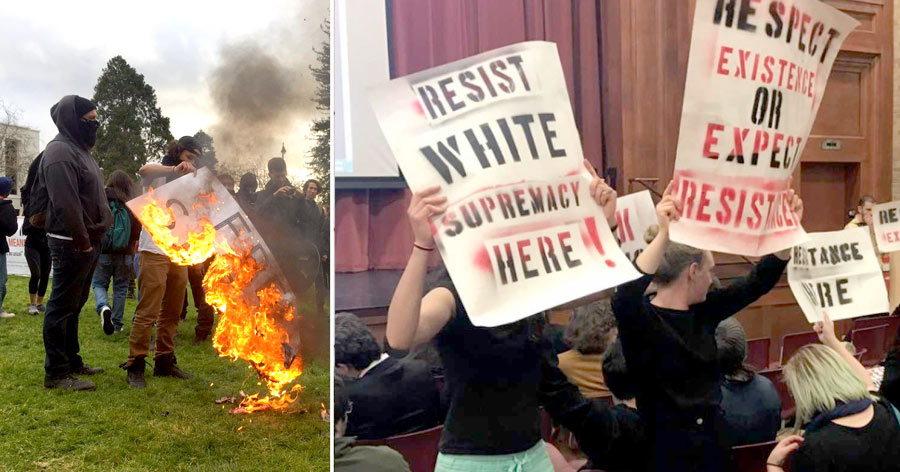Disney is taking big financial losses, after a series of bombs on the silver screen and on its own channel, including a billion on last year’s four film fiascos.
Why?
The company went super-woke. And could, therefore, go broke.
Or, says Patrick Ben David, become a “zombie company,” unable to make profits, kept alive only by low interest rates and the hope that Apple will buy it.
Nevertheless, Disney joined a group of major players pulling their advertising off Twitter, er, X.
Why?
Because X’s new owner, Elon Musk, favorably forwarded a tweet about anti-white racism that was said, by many, to be antisemitic.
It’s the rage, now, not only to support Hamas’s terrorism but to excoriate Israel, Zionism, and even Jews in general, yet it was Musk’s forwarded tweet about how Jewish intellectuals and organizations too often support anti-white rhetoric that panicked the big companies, including Bob Iger-headed Disney.
Andrew Ross Sorkin, in an on-stage New York Times interview, asked Mr. Musk to respond to all this. “I hope they stop,” Musk said. “Don’t advertise.”
Musk went on: “If somebody’s going to try to blackmail me, with advertising — blackmail me with money? — ‘go f**k yourself.’”
Then Musk repeated that command, using hand signals.
“Is that clear? I hope it is.” Smiling, he added, “Hey Bob . . . if you’re in the audience.”
Mr. Sorkin pressed X’s owner on the consequences.
“What this advertising boycott is going to do is kill the company,” said Musk, amidst his usual stutters. “And the whole world will know that those advertisers killed the company — and we will document it in great detail.”
“But those advertisers are going to say, ‘we didn’t kill the company.’”
“Oh, yeah? Tell it to Earth.”
Musk explained that both he and the boycotters will make their cases, “and we’ll see what the outcome is.”
The idea is to take the culture war outside educational institutions, the news media, and government bodies, and to shove it into boardrooms everywhere. It’s a great game of chicken, buck buck buck. And, unlike Gale Wynand in The Fountainhead, Musk appears more than willing to lose his investment in X just to prove the point.
An interesting place we’ve come to. The insider elites, and the ideological left, seek to advance woke ideology even if it ruins their own companies, such as Disney, and squelch free speech, even if it means betraying every last principle of American liberty.
So, in this war with other people’s fortunes, take sides: die, Disney, die — before X, let’s hope.
This is Common Sense. I’m Paul Jacob.
Illustration created with PicFinder and Firefly
—
See all recent commentary
(simplified and organized)




